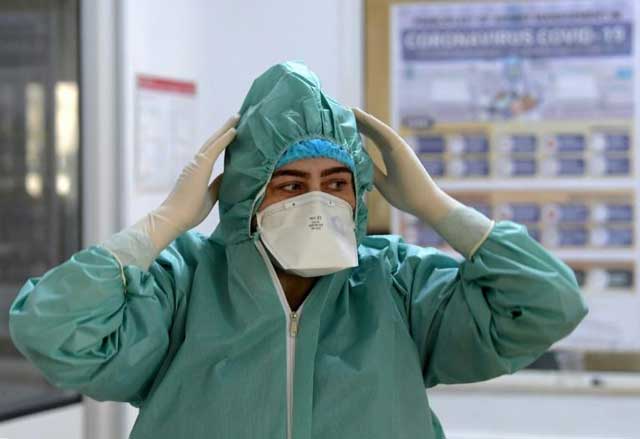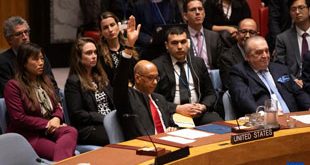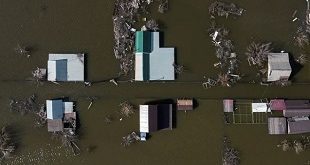
Tunis, Tunisia | AFP | Amira Jamoussi, a doctor on the front line fighting the novel coronavirus in a hospital in Tunisia, is spending the Muslim holy month of Ramadan away from her family.
“It’s been five weeks since I’ve held my children in my arms,” Jamoussi said, before putting on a protective suit, mask and eye gear to start her shift.
Jamoussi works in the intensive care unit of the Abderrahmane Memmi hospital in Ariana, north of the capital Tunis.
Like many working in wards treating COVID-19 patients, she is living away from her loved ones in order to avoid the risk of spreading the infection.
That’s particularly difficult during the month of Ramadan — usually a time when families come together for meals at dusk when the day-time fast is broken.
“What helps us hold on is the satisfaction of seeing patients pull through,” said Jamoussi, who has a seven-year-old son and 11-year-old daughter.
Tunisia has officially declared 40 coronavirus deaths from 975 cases since early March, and so far has avoided seeing its hospitals overwhelmed by the disease.
Many front-line hospital workers are staying in isolation during their rotations and for five to 14 days after they finish.
Those who live alone, or have a separate bathroom, can self-isolate in their own homes but others are put up in hotel rooms or hostels provided by regional authorities or hotels free of charge.
Public-sector doctors in Tunisia are paid between 2,000 and 3,600 dinars ($690-$1,245), and other medical workers earn a few hundred dinars,
“I was very afraid of infecting my family. I had nightmares about it”, said Jamoussi, who found through her own connections, a small flat.
– ‘Don’t have a choice’ –
Life in isolation has become “particularly difficult with Ramadan”, said Nawel Chaouch, head of the pulmonology department at the Abderrahmane Memmi hospital.
“There are many women among the staff, and delegating the preparation of Ramadan meals to their husbands is not easy,” she added.
Some staff members have been able to spend a few days with their families after quarantining and if they test negative for the virus — and avoid close contact.
“The medical personnel are constantly asking for tests so they can leave isolation as quickly as possible,” Chaouch said.
But they are also anxious to leave because their accommodation is often austere.
Doctors and nurses have shared photos on social media of dirty rooms and sandwiches for meals, while others have been left waiting for lodgings for hours at the end of their shifts.
Jamoussi, who is in her forties, paid tribute to private donors who have helped equip her team at the hospital and improve the daily lives of medical workers.
But “the hardest thing is to see some colleagues isolating in terrible conditions”, she said.
Around a hundred medical personnel are in isolation in the capital Tunis, where the main facilities treating coronavirus patients are located, according to health ministry official Mohamed Rabhi.
He was unable to provide figures for the rest of the country.
The government has not requisitioned hotels for those requiring isolation, instead counting on facilities to volunteer their services.
Some have been reluctant to do so given the costs involved.
Rabhi acknowledged that finding a place for everyone has not been easy, as the country had also struggled to find accommodation for some 9,000 people repatriated from abroad who needed to be isolated.
As for Jamoussi, she said her son and daughter “are asking me when I’m going to change jobs”.
Contact with her family has been very limited over the past weeks, she added.
“We’ve just allowed ourselves little family outings to cope, short walks without contact,” she said.
“I miss them but we really don’t have a choice.”
 The Independent Uganda: You get the Truth we Pay the Price
The Independent Uganda: You get the Truth we Pay the Price


